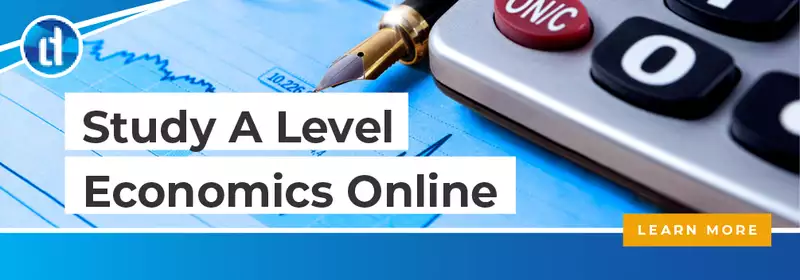The main concept of Economics is the study of people to explain the driving factors of human behaviour, decisions and reactions in the face of difficulty or success. It does so through a combination of politics, sociology, psychology and history.
It is one of the central disciplines that supports the study of business, management and public policy. By studying Economics, you develop skills, approaches and ways of thinking that can be applied to many problems in an array of industries.
With the methodologies used in the Economics profession being so well developed, they now provide tools for other disciplines like law, health, politics and education. To gain a broader insight into the driving factors of behaviour, Economists now draw on behavioural science, psychology, and neuroscience.
If you aspire to be an Economist, you will have a natural interest in the world around you. You will be intrigued by topics such as history, politics, international affairs and consumer behaviour both at home and overseas. All of which influence how individuals, companies and governments behave and make decisions. You will also have a good head for mathematics and statistics and ideally a good memory.

What the Course Involves
This course has been designed in collaboration with teachers and universities. This is to ensure that it is both engaging and up-to-date, taking into account the fundamental advances and changes in Economic ideas.
A Level Economics will build on any previous economic knowledge you have and allow you to apply the theory to understand and analyse current economic problems.
You will study the roles, dependencies and implications of both individuals and business decisions and the decisions made by countries and governments. Known as microeconomics and macroeconomics. You will also explore economic methodology and price determination in relation to production and costs among other topics.
Throughout A Level Economics, you will be challenged to think critically. Understanding and analysing data to build well-structured arguments that consider both qualitative and quantitative evidence.
As a result, you will be able to comprehend how markets operate and fail, and the national economy in a global context.
Your exams will be sat at the end of the course in May/June, where you will need to complete three exam papers:
Paper 1: Markets and market failure
Paper 2: National and international economy
Paper 3: Economic principles and issues
Each paper holds equal weight to your final A-level grade. On successful completion of A-level Economics, you will have the skills and strong foundation of knowledge you’ll need to study Economics at a degree level.

Modules You Will Study
The course is split into two main sections. The first part will introduce you to microeconomic issues and the second section looks mostly at those that are macroeconomic. However, emphasis will also be placed on the fact that these two influences are not completely distinct and in fact are quite interdependent.
Individuals, firms, markets and market failure
Economic Methodology and The Economic Problem – Looking at economics as a social science, the nature and purpose of economic activity, economic resources, scarcity, choice and the allocation of resources, along with production possibility diagrams.
Individual Economic Decision Making – Assessing consumer behaviour, the importance of information for decision making, aspects of behavioural economic theory, behavioural economics and economic policy.
Price Determination in a Competitive Market – Understanding the determinants of the demand for and supply of goods and services, price, income and cross elasticities of demand, price elasticity of supply, the determination of equilibrium market prices and the interrelationship between markets.
Production, Costs and Revenue – Evaluating production and productivity, specialisation, division of labour and exchange, the law of diminishing returns and returns to scale, costs of production, economies and diseconomies of scale, marginal, average and total revenue, profit and technological change.
Perfect Competition, Imperfectly Competitive Markets and Monopoly – Viewing different market structures, the objectives of firms, perfect and monopolistic competition, oligopoly, monopoly and monopoly power, price discrimination, the dynamics of competition and competitive market processes and more.
The Labour Market - The demand for labour, marginal productivity theory, influences upon the supply of labour to different markets, the determination of relative wage rates and levels of employment in perfectly and imperfectly competitive labour markets and other related subjects.
The Distribution of Income and Wealth: Poverty and Inequality – Exploring the problem of poverty, government policies to alleviate poverty and to influence the distribution of income and wealth.
The Market Mechanism, Market Failure and Government Intervention in Markets - How markets and prices allocate resources, the meaning of market failure, public goods, private goods, quasi-public goods and more.

The National and International Economy
The measurement of macroeconomic performance – Realising the objectives of government economic policy, macroeconomic indicators, uses of index numbers and national income data.
How the Macroeconomy Works – Identifying the circular flow of income, Aggregate demand and aggregate supply analysis and related concepts.
Economic Performance - Economic growth and the economic cycle, employment and unemployment, inflation, deflation and the possible conflicts between macroeconomic policy objectives.
Financial Markets and Monetary Policy - The structure of financial markets and financial assets, commercial, investment and central banks, monetary policy and the regulation of the financial system.
Fiscal Policy and Supply-Side Policies – Understanding how fiscal policy involves the manipulation of government spending, taxation and the budget balance and the difference between supply-side policies and supply-side improvements in the economy.
The International Economy – Globalisation, trade, the balance of payments, exchange rate systems and economic growth and development.

What You’ll Learn
Through studying Economics, you will become adept in the application of economic principles and models to complications in business, finance and the public sector. More broadly, by using economic concepts you will be able to understand the logic of complicated data. Allowing you to see how things relate in a wider context.
Alongside this, you will develop an array of transferrable skills that you can take into further study and the working environment. Your communication skills will have improved, having presented your ideas in a well-defined framework while supporting yourself with complex data.
Your numeracy skills will be exemplary, having handled complex data and techniques in your regular mathematical and statistical analysis.
Through the above practices, you have demonstrated enviable analytical and problem-solving skills that would be revered in most companies.
A-level Economics helps you to think strategically, making decisions that will optimise outcomes.

Where You Can Go with Economics
The work you will undertake to gain a qualification in Economics will prepare you for any career that desires numerical, analytical and problem-solving skills – which is generally the vast majority. Roles such as business planning, marketing, research and management can all be popular avenues to explore.
Many employers in banking, government, insurance, accountancy and business often employ Economists. This is because they have the specific ability to identify financial risks, spot social trends and make informed decisions around investing resources.
Think tanks or research institutes and consultancies involved in public policy all value the well-informed advice given by an Economist.
Economists are also well positioned to become involved with roles in ‘Big Data’. A field that analyses large volumes of data to recognise patterns and make better-informed decisions. Examples of this could be the spread of diseases, patterns in crime, trends in financial markets or consumer behaviour.

Should I Study Economics Online?
If you decide to take your A-level Economics online course, you can receive the A-level qualification you need without having to step foot in a classroom.
Going back into college isn’t a thought everyone relishes, especially if you are an adult learner. With distance learning, you can study in the comfort and privacy of your own home, away from the anxieties and distractions of a classroom.
Online courses remove the need for term times and timetables. You can enrol at any point in the year and study wherever you want, at a time of day that suits your lifestyle. The only deadline you need to remember is your exams in May/June.
So, no matter if you are studying while working or around family commitments, you can get the qualification you need. Plus, with the ability to complete A Levels in as little as 9 months, depending on when you enrol you could be on your way to university within a year.
learndirect is a leading UK online course provider. We give you the tools to learn and you do the rest. Find out more about our A Level Economics online course by clicking the link to the specification below.



















